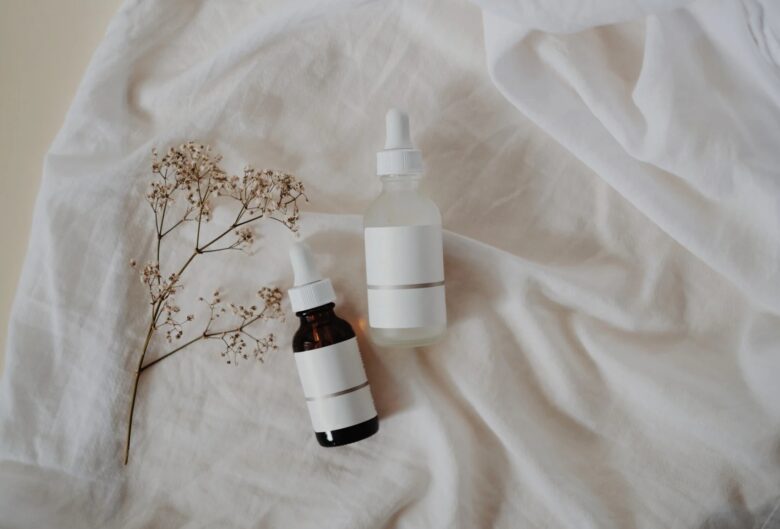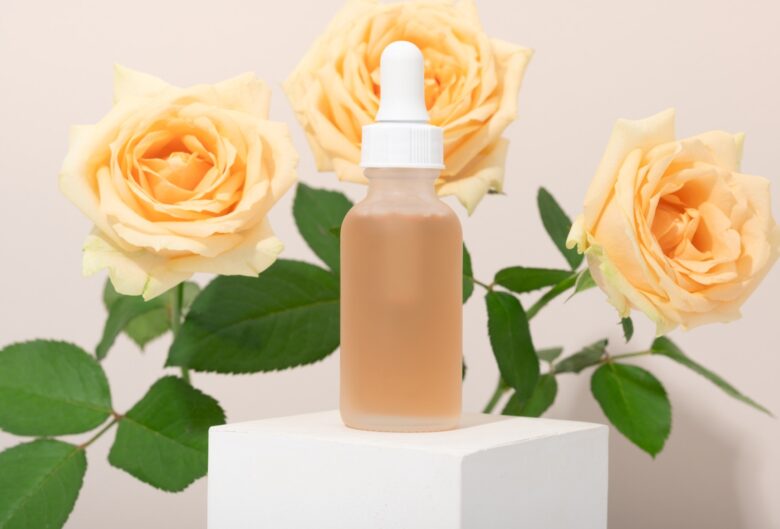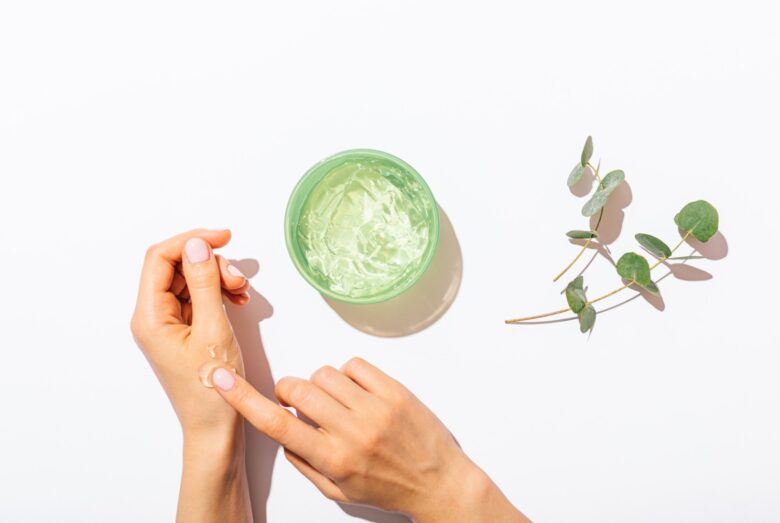The colder months are effective, especially for people with combination and dry skin as various beauty issues arise. During the winter, it is common to encounter problems, like cracking, irritation, rash, and peeling. But, not all are listed. There are other ways of combating dry skin in the winter than remaining inside with tightly closed windows. The most excellent skincare products for dry skin will do their wonders on your skin when you use them in your regimen. You can buy skincare products online for dry skin and use Bath and body works coupons $10 for the best discounts!
However, you must know about the ingredients for dry skin that most fits you, and ensure they are included in the beauty products, procedures, or at-home remedies you use. Let’s have a look at a few such ingredients.
Contents
12 Essential Ingredients for Dry Skincare
Here are 12 essential ingredients that work best for dry skin.

Source: canva.com
-
Glycerin
Glycerin is a flavorless, colorless humectant that works particularly well in beauty treatments that claim to moisturize the skin. To maintain it hydrated, it keeps fluid within the cells safe. It works wonders in the healing of wounds and irritation.
-
Hyaluronic Acid
Hyaluronic acid, a popular component in the skincare industry, exists naturally in the human body. It is commonly referred to as HA and moisturizes the skin, making it look hydrated and smoother.
As a humectant, it attracts moisture from the environment and transports it to the cells. Therefore, to build a layer on the skin, it must get used with a hydrating moisturizer or a lubricant, like a face oil.
-
Shea Butter
Shea butter has gained notoriety in the skincare industry for being exceptionally nutritious and rich. It might calm skin and reduce roughness even in its natural form.
Shea butter is a moisturizer that absorbs quickly into the skin and aids in moisture retention, keeping skin moisturized and smooth.

Source: canva.com
-
Coconut Oil
Due to its medium-chain triglycerides, which keep skin supple, shielded, and moisturized, it is one of nature’s best moisturizers and emollients.
Makeup and skin buildup can get effectively removed with it. An open, extra-virgin source is crucial when using coconut oil for any skin type.
-
Sunflower Seeds Oil
This oil, which is pale in color, is made from sunflower seeds. The skin is calmed and soothed with sunflower seed oil. Because it is lighter than some other oils, it blends nicely to make different oils simpler to apply.
-
Vitamin E
Almond oil, chia seeds, and avocados are just a few foods that contain vitamin E. Consequently, eating them is a fantastic strategy to profit from them.
Due to its ability to shield skin from free radicals’ damaging effects and increase hydration, vitamin E is also found in beauty products.

Source: canva.com
-
Jojoba Oil
Because of how special jojoba oil is, it is included on our list. Although dry skin may suffer most of the effects of winter skincare issues, every skin type can also experience them.
Because jojoba oil replicates naturally occurring sebum, it is suitable for all skin types, including oily and mixed skin. It provides skin with natural nourishment and feels light and non-greasy on the skin’s surface.
-
Fatty Alcohols
In the field of skin care, alcohol generally has a poor reputation. Alcohol is frequently perceived as a drying, irritating ingredient—and it most certainly can be!—but not all alcohols are created equal. Fatty liquors, like cetyl and stearyl alcohol, can be hydrating.
These substances, which are also naturally present in the skin’s protective layer and aid in preventing water loss, are similar to ceramides. Fatty alcohols are frequently derived from plant or vegetable oils and are present in skin care products.
-
Squalane
It is a more recent and fashionable skincare component, a slightly modified form of squalane, a substance produced naturally in our skin—specifically, in our sebaceous glands.
The oil that provides your skin with a greasy feeling and aids in protecting and moisturizing is sebum, produced by the sebaceous glands. Squalane, which functions like a moisturizer and feels lighter on the skin than sebum, absorbs quickly into your skin.

Source: canva.com
-
Lactic Acid
Substances like glycolic acid, lactic acid, and polyhydroxy acids are typically thought of as exfoliates. Intriguingly, they also act as humectants. Since they are exfoliates, which can irritate the skin, these shouldn’t be your primary source of moisture.
So, it’s good to know that these components can hydrate your skin while eliminating dead skin cells and other impurities.
-
Ceramides
Fatty molecules called ceramides are found in the skin. They function as a component of the shield to stop trans epidermal moisture loss. Thus, incorporating ceramides into your cosmetic routine can be beneficial.
Ceramides maintain hydration safely within the skin, making it supple and velvety. Additionally, they lessen the peeling, itching, and inflammation associated with disorders like eczema.
-
Aloe Vera Gel
Aloe Vera helps relieve and soothe skin if it is irritated or if you occasionally develop a stress rash on your face. Since it is frequently used to soothe dry, irritated skin, it has been widely regarded as a “skin savior.” Although Aloe Vera is a component in many items on the market, using it at home is the most efficient method.
The water, vitamins, minerals, and other elements found in Aloe Vera gel are all vital for the health of your skin. Keeping an Aloe Vera plant nearby is advised if you want to keep your skin hydrated and healthy. Just tear off a leaf after a hard day in the sun.

Source: canva.com
Invest In High-Quality Ingredients for Dry Skincare
Our best recommendation for dry skin is to utilize high-quality products. Do everything you need to provide your skin with a dosage of the most significant ingredients for dry skin, including reading the packaging of your skincare products, drinking plenty of water, or mixing correctly. Buy the best products available online for your dry skin.
Make the best usage of Bath and body works coupons $10 to lower the rates while shopping premium skincare items from Bath and Body Works.
About The Author
A seasoned scientific and health journalist, Sarah Jacoby is passionate about the science of psychological health, reproductive and sexual health, drugs, and drug policy. Having studied psychology and neuroscience in the past, Sarah is a graduate of NYU’s Science, Health, and Environmental Reporting Program.
